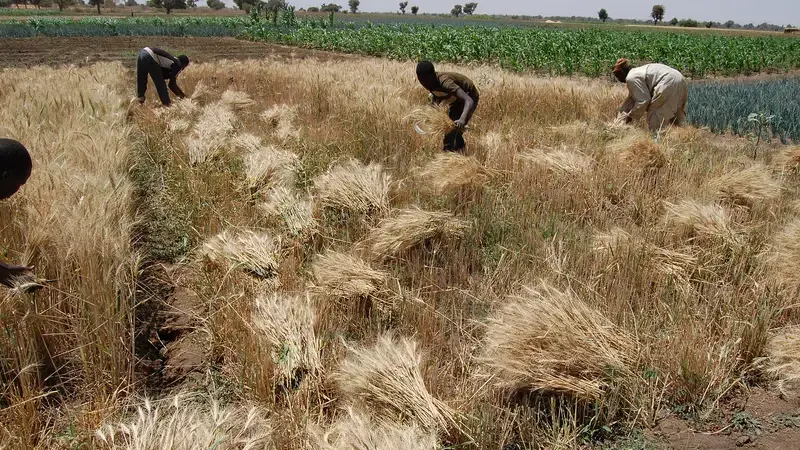Breeding resilient crops of the future

Confronted with extreme temperatures, widespread land degradation, and increasing water scarcity, dryland farmers often struggle to raise their productivity and yields. Production of staple crops such as pulses, wheat, and barley is limited in many regions – contributing to significant import burdens that undermine national food security and expose ordinary people to the vagaries of global commodity markets.
Improved, climate-resilient, and high-yielding crop varieties offer a practical and sustainable way of adapting to the harsh conditions characteristic of dryland regions. ICARDA has a global mandate for the improvement of barley, lentil, faba bean, and grasspea, and shares a mandate for wheat and chickpea. Since its inception in 1977, the Center has developed over 900 improved cereal and legume varieties that have been released in partnership with national crop improvement programs.
ICARDA’s partnership with the CGIAR and the International Maize and Wheat Improvement Center (CIMMYT) has brought significant impacts to global wheat production. A recent study of the benefits of this partnership covering the period 1994-2014 demonstrated that: improved wheat varieties using CGIAR breeding lines now cover more than 100 million hectares (ha) – nearly two-thirds of the area sown to improved varieties worldwide; economic benefits generated by added grain ranged from 2.8 to 3.8 Billion USD each year; and farmers enjoyed access to some 4604 improved wheat varieties.
Selected impacts of improved climate-resilient crop varieties (1977-2017):
To combat sub-Saharan Africa’s rising dependence on costly food imports and to protect ordinary Africans from the vagaries of global commodity markets, ICARDA and its national partners have developed and released heat-tolerant wheat varieties that are capable of generating up to six tons per hectare (6t/ha) – significantly higher than the 2 t/ha achieved by conventional varieties.
When a devastating outbreak of stripe rust occurred in 2010, causing significant losses and economic hardship for Ethiopia’s wheat farmers, a USAID-funded initiative managed by ICARDA supported the rapid development and distribution of high-yielding, rust-resistant wheat varieties. These varieties are now helping Ethiopian farmers to raise their wheat production - generating higher incomes and strengthening the food security of rural communities.
In South Asia, ICARDA has been working with national partners to boost the production of pulses, a major contributor to regional diets. Encouraging small farmers to grow lentils in fields left fallow after rice harvests has improved their livelihoods and nutrition, and demonstrated to national governments a path towards self-sufficiency and reduced dependence on foreign imports. The Center has also developed, tested, and disseminated micronutrient-rich lentil varieties to combat malnutrition, and high-yielding, low-toxin grass pea varieties
